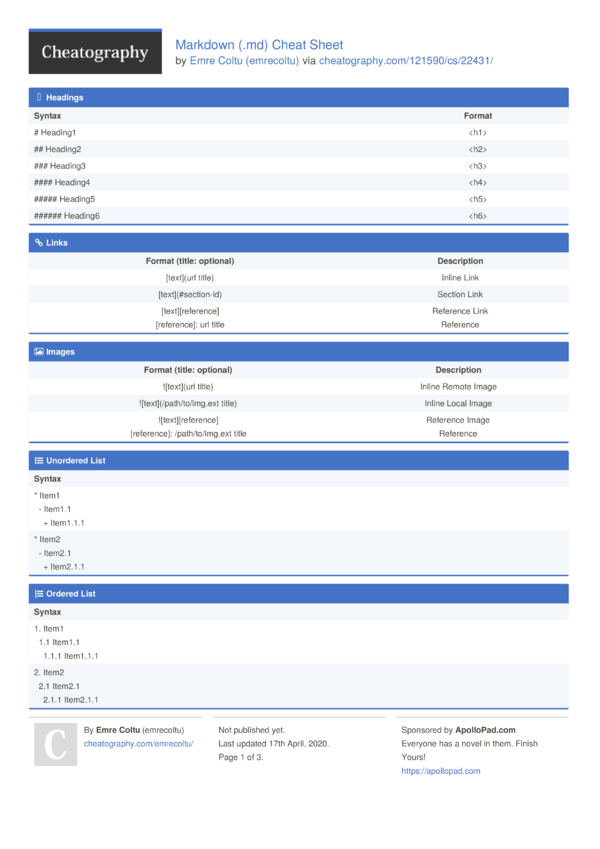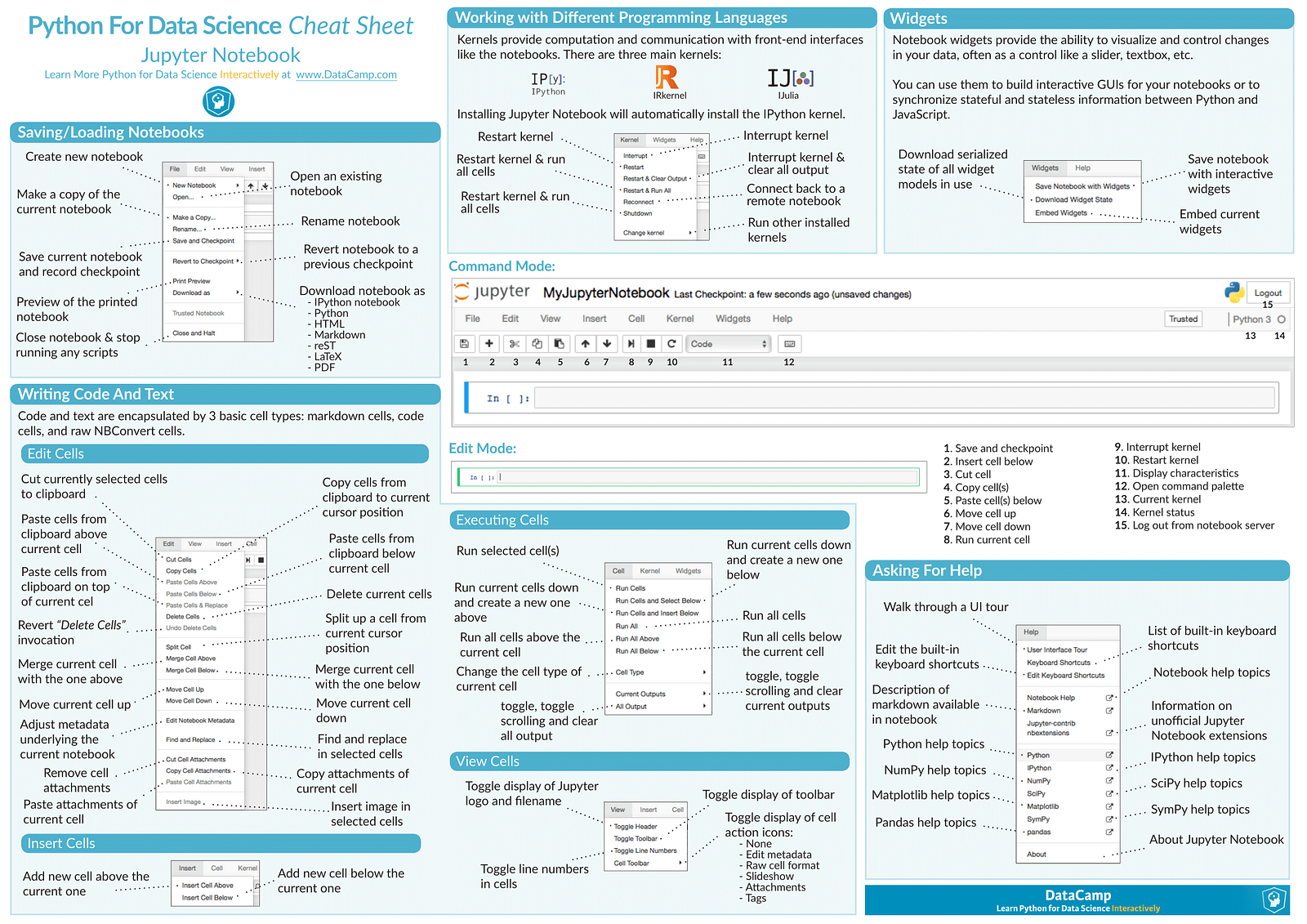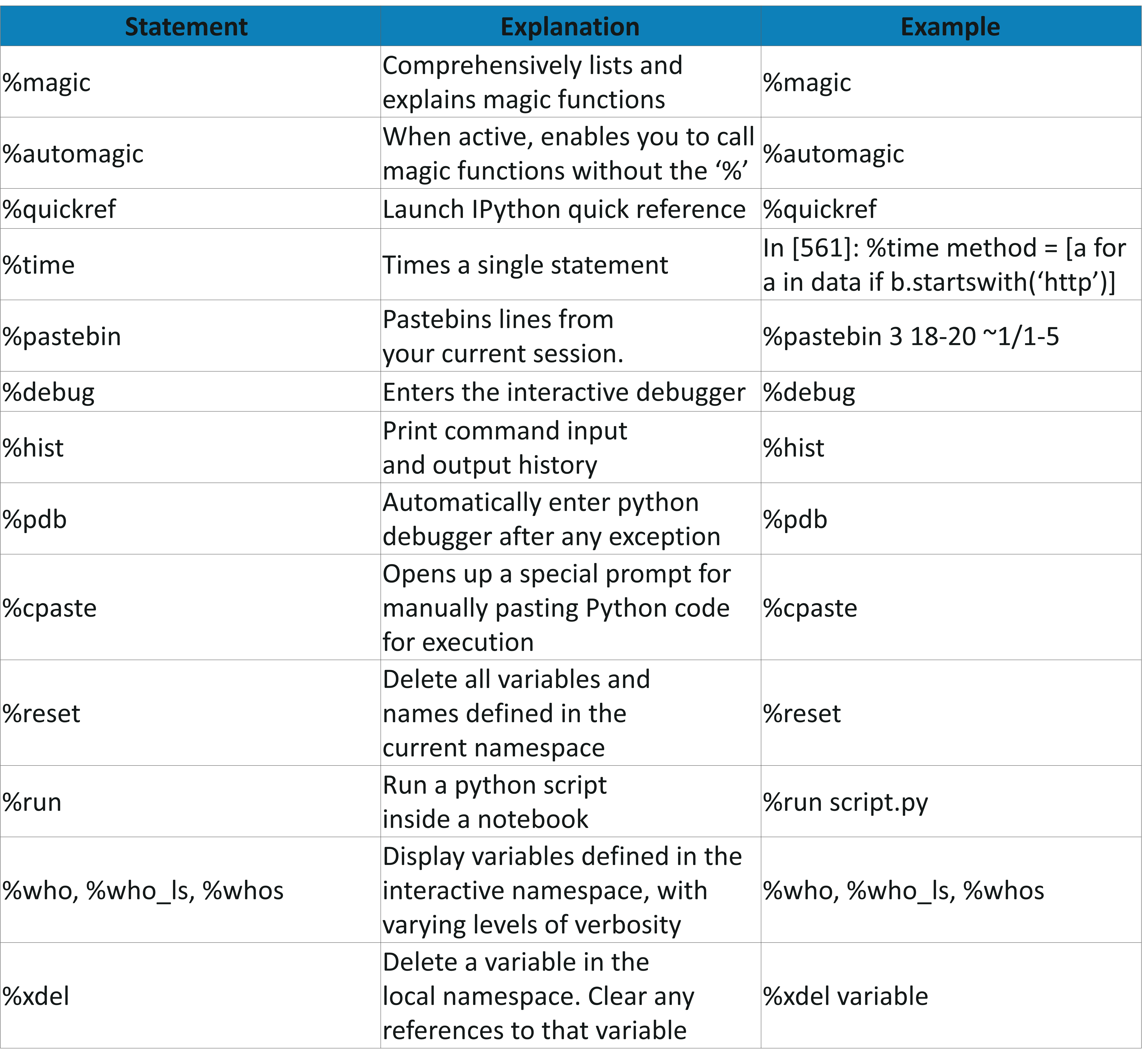The markdown cell in Jupyter Notebook can display six levels of heading. For making a heading, start the syntax with # followed by a space and then the text. This will make the heading of level 1 – The biggest. To decrease the size of the heading start incrementing the number of #. Jupyter Notebook Markdown Cheatsheet April 9, 2020 SqlBak mike Jupyter Notebook is a great tool for data analysis. And one of its greatest features is that you can easily combine runnable code with rich-text annotations. 8/2/2019 Markdown for Jupyter notebooks cheatsheet 3/6 To create a circular bullet point, use one of the following methods. Each bullet point must be on its own line. A hyphen (-) followed by one or two spaces, for example: - Bulleted item A space, a hyphen (-) and a space, for example: - Bulleted item An asterisk (.) followed by one or two spaces, for example:. Bulleted item To create a sub. Markdown is a way to style text on the web. You control the display of the document; forma˜ing words as bold or italic, adding images, and creating lists are just a few of the things we can do with Markdown. Mostly, Markdown is just regular text with a few non-alphabetic characters thrown in, like # or. Using markdown, you can quickly include headers, links, images, bold or italic text, paragraphs, and ordered or unordered lists. In this guide, we'll be using Jupyter notebooks to demonstrate markdown, however note that markdown is not Jupyter specific. Many other services and products use it to allow easy text formatting.
- Markdown Cheatsheet Pdf
- Jupiter Keyboard Shortcut Cheat Sheet
- Markdown Jupyter Cheat Sheet Pdf
- Markdown Cheat Sheet Jupyter Notebook
- Jupiter Notebook Markdown Guide
You can write content in regular Markdown files (e.g., files ending in .md).Jupyter Book supports any Markdown syntax that is supported by Jupyter notebooks.Jupyter Notebook Markdown is an extension of a flavour of Markdown calledCommonMark Markdown.It has many elements for standard text processing, though it lacks a lot of features used forpublishing and documentation.
Note

If you’d like a more in-depth overview and guide to CommonMark Markdown, seethe CommonMark Markdown tutorial.
This page describes some basic features of the Jupyter Notebook Markdown, and how toinclude them with your book.
Embedding media¶
Adding images¶
You can reference external media like images from your Markdown file. If you userelative paths, then they will continue to work when the Markdown files are copied over,so long as they point to a file that’s inside of the repository.
Here’s an image relative to the book content root

It was generated with this code:
See also
Images and figures for more information.
Adding movies¶


You can even embed references to movies on the web! For example, here’s a little GIF for you!
Markdown Cheatsheet Pdf
This will be included in your book when it is built.
Mathematics¶
For HTML outputs, Jupyter Book uses the excellent MathJax library,along with the default Jupyter Notebook configuration, for rendering mathematics from LaTeX-style syntax.
For example, here’s a mathematical expression rendered with MathJax:
Block-level mathematics¶
You can include block-level mathematics by wrapping your formulas in $$ characters.For example, the following block:
Results in this output:
Jupiter Keyboard Shortcut Cheat Sheet
You can also include math blocks by using LaTeX-style syntax using begin{align*}.For example, the following block:
Results in:
Important
Markdown Jupyter Cheat Sheet Pdf
This requires the amsmath MyST extension to be enabled.
Markdown Cheat Sheet Jupyter Notebook
Extended Markdown with MyST Markdown¶
Jupiter Notebook Markdown Guide
In addition to CommonMark Markdown, Jupyter Book also supports a more fully-featured version of Markdown called MyST Markdown.This is a superset of CommonMark that includes syntactic pieces that are useful for publishing computational narratives.For more information about MyST Markdown, see MyST Markdown overview.
